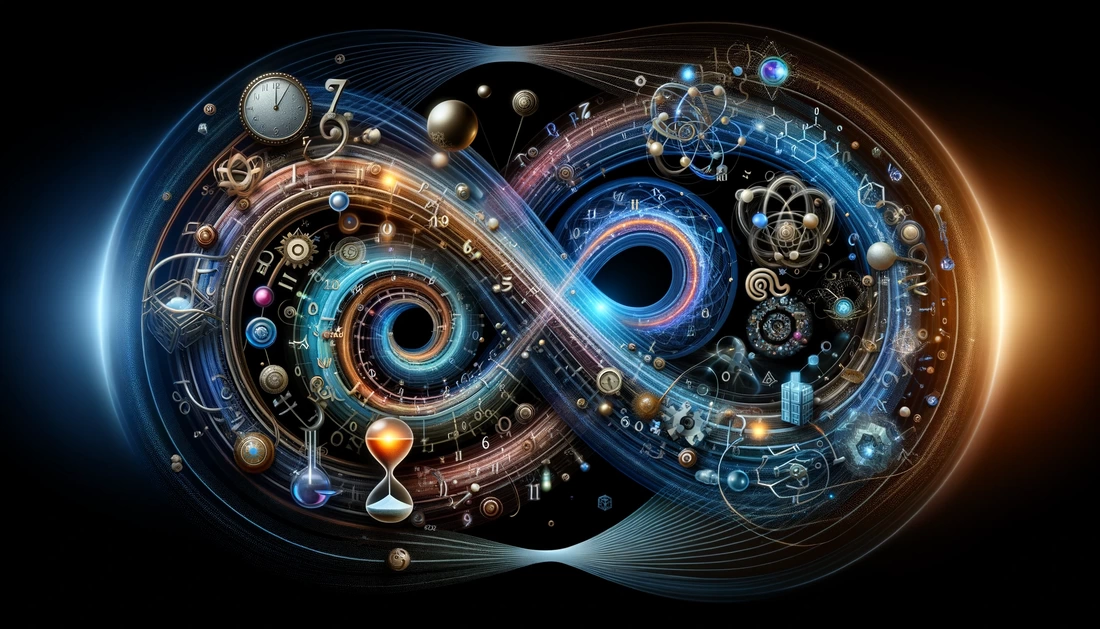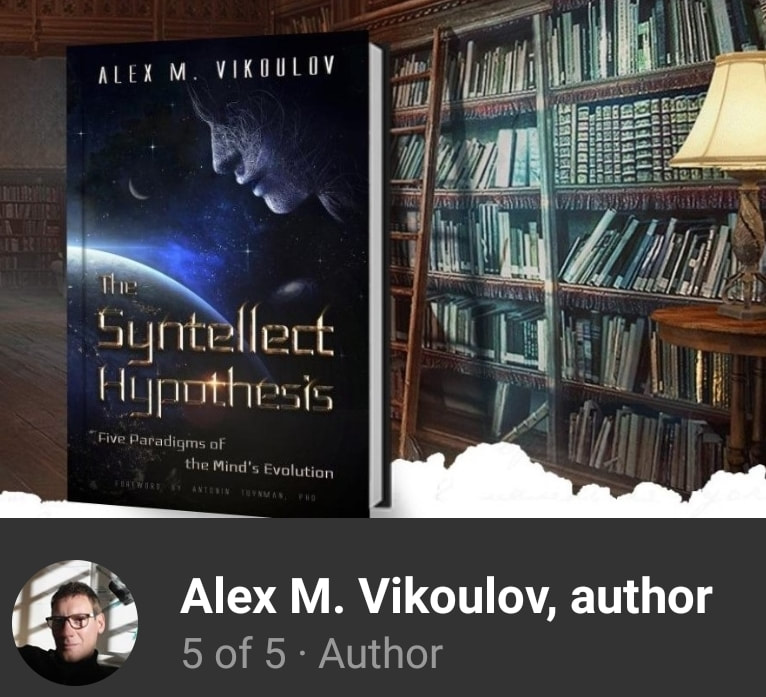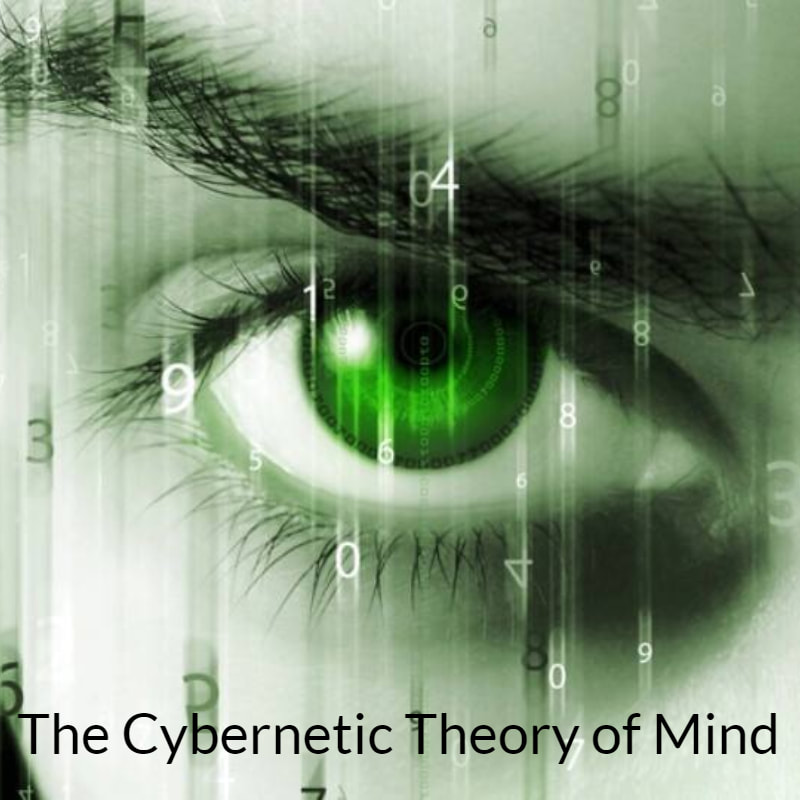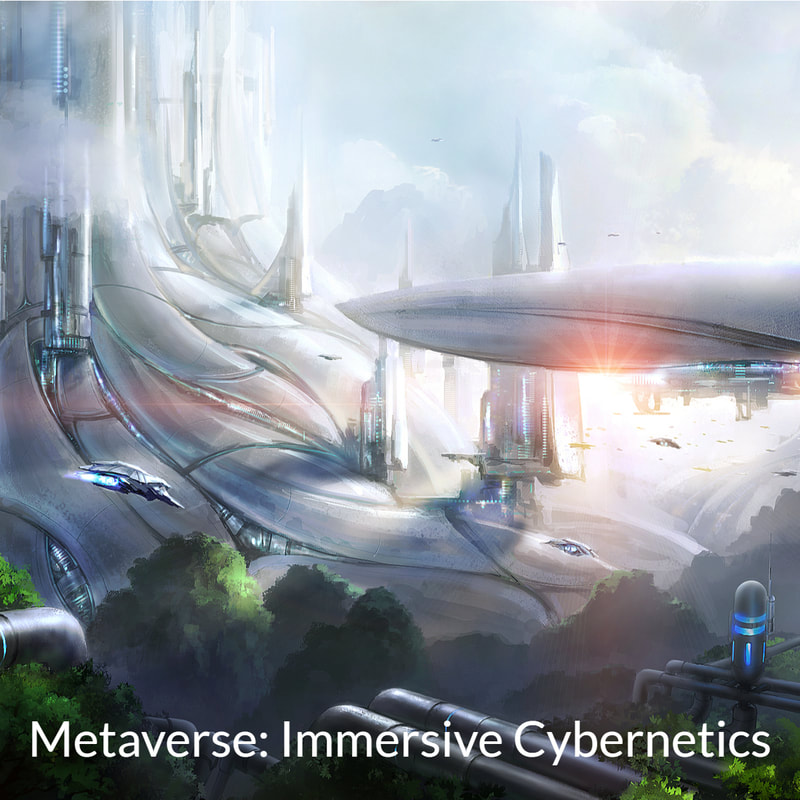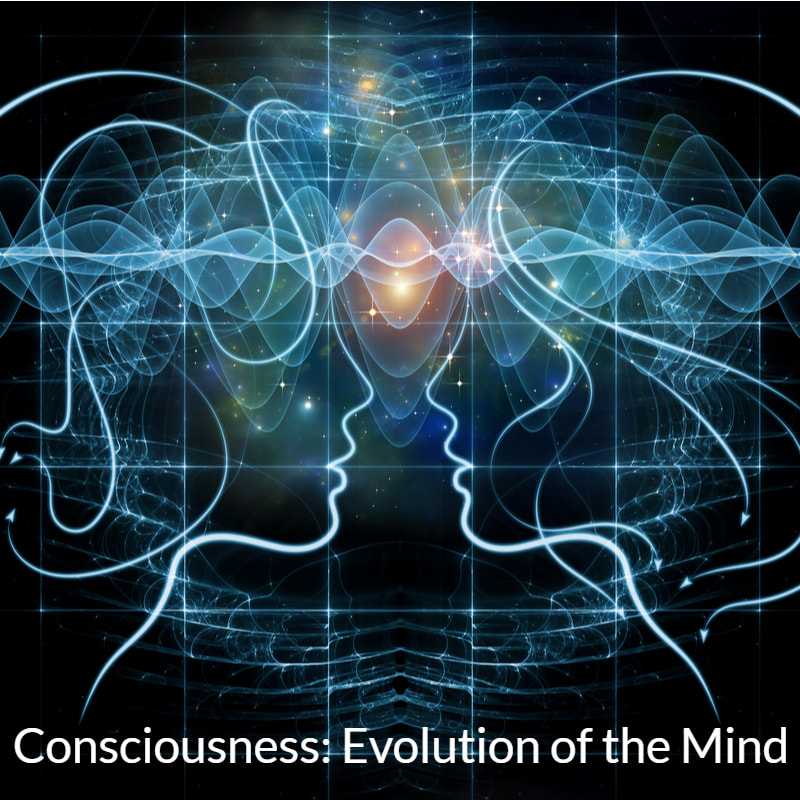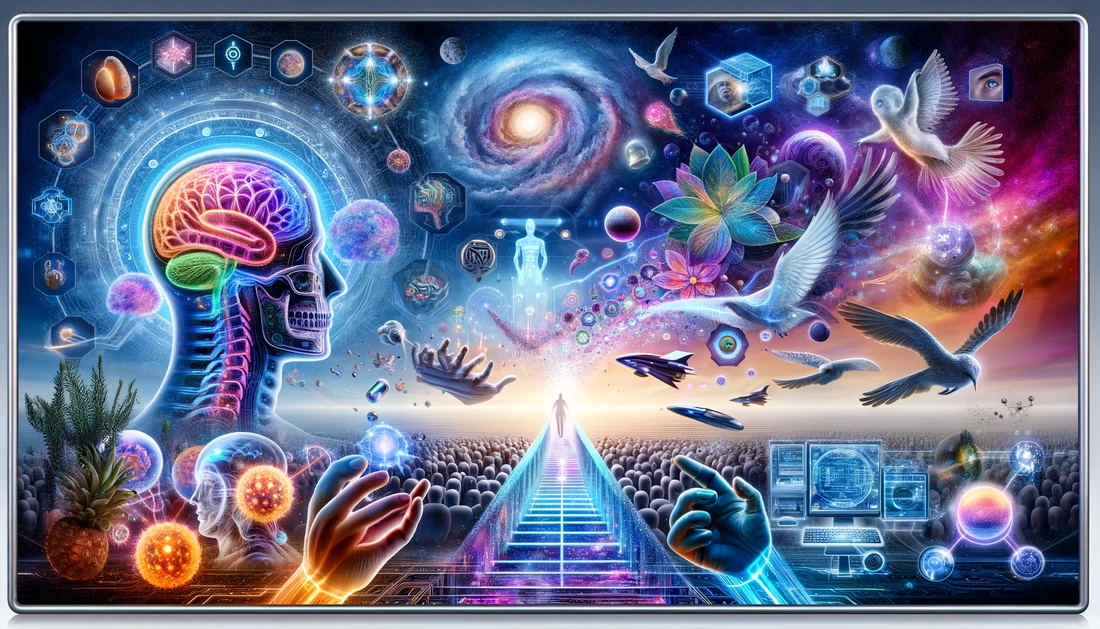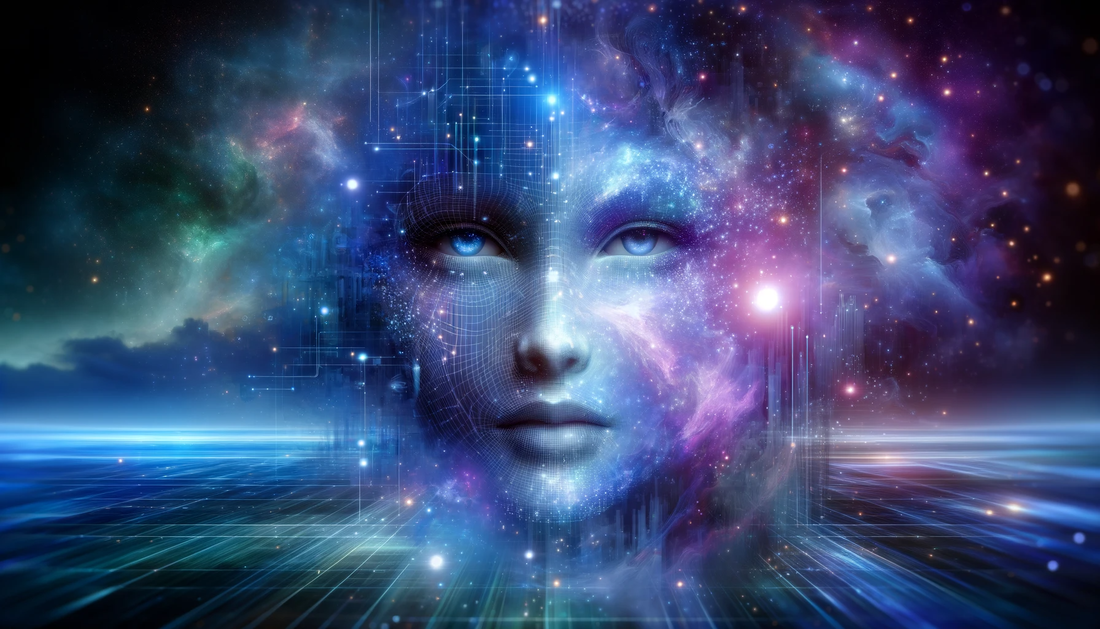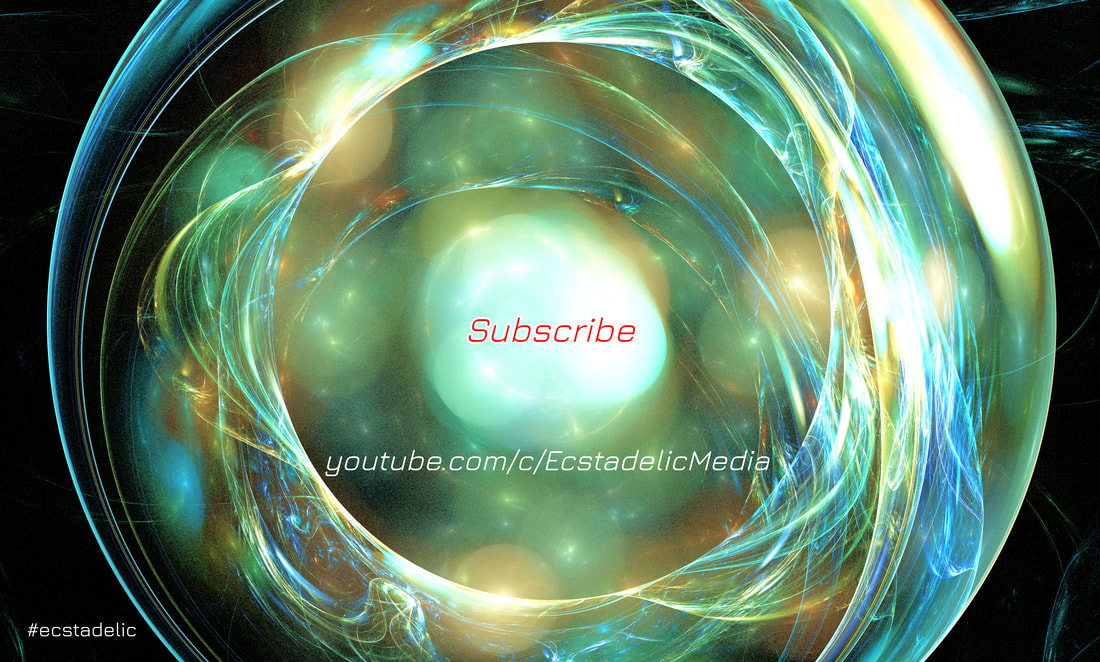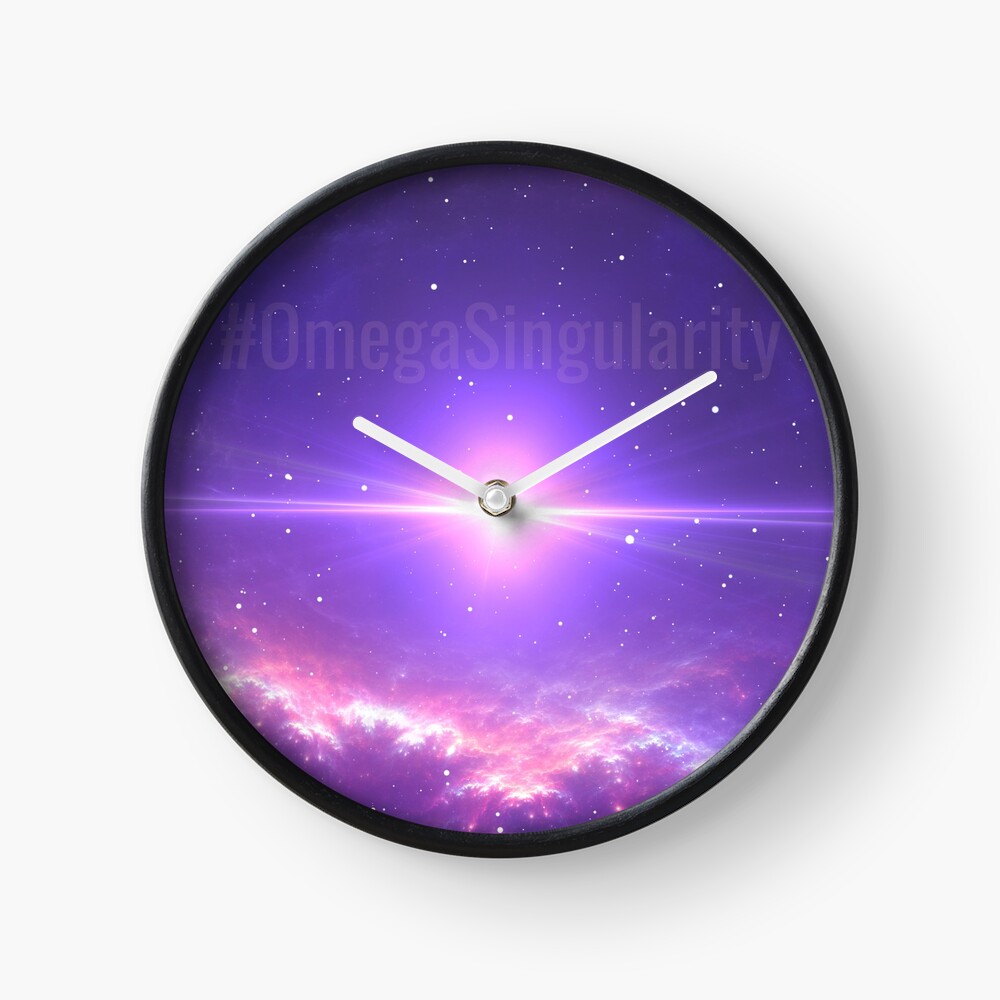|
by Alex M. Vikoulov “In a sense, Nature has been continually computing the ‘next state’ of the Universe for billions of years; all we have to do — and actually all we can do — is ‘hitch a ride’ on this huge ongoing [quantum] computation.” —Tommaso Toffoli In the fascinating intersection of quantum computing and the human experience of time, lies a groundbreaking theory that challenges our conventional narratives: the D-Theory of Time. This theory proposes a revolutionary perspective on time not as fundamental but as an emergent phenomenon arising from the quantum mechanical fabric of the universe. In my upcoming book with a working title Cybernetic Theory, the entire section is dedicated to the physics of time, where we discuss the D-Theory of Time, predicated or reversible quantum computing at large, which represents a novel framework that challenges our conventional understanding of time and computing. Here, we explore the foundational principles of the D-Theory of Time, its implications for reversible quantum computing, and how it could potentially revolutionize our approach to computing, information processing, and our understanding of the universe. At its core, the D-Theory of Time suggests that time may not be a fundamental aspect of the universe but rather an emergent property arising from the interactions of more basic entities or processes. Time symmetry, in physics, refers to the principle that the fundamental laws governing the universe are invariant, or unchanged, when the direction of time is reversed. Given extra degrees of freedom, time is not a linear, unidirectional flow but a set of dimensions that can be traversed in both directions, akin to spatial dimensions. This perspective aligns with the concept of reversible quantum computing, where operations are not only forward but can also be reversed, preserving quantum information, and potentially enabling universal computations that are far beyond the capabilities of classical computing. As you may know, reversible quantum computing is a paradigm that extends the conventional model of quantum computing by ensuring that every computational step is reversible. This means that for every operation that takes a particular input to an output, there exists a reverse operation that can take the output back to the original input without loss of information. This is in stark contrast to classical computing, where many operations are irreversible, leading to the loss of information and an increase in entropy. The significance of reversible computing lies in its potential to perform computations more efficiently, with lower energy consumption, and without generating heat. This is particularly crucial for quantum computing, where the delicate state of qubits must be preserved to maintain coherence and enable complex computations. The D-Theory of Time, when tied to the concept of reversible quantum computing, offers a fascinating glimpse into a future where the boundaries of computing and our understanding of the universe are dramatically expanded. By challenging the traditional notions of time and leveraging the principles of quantum mechanics, we stand on the brink of a new era in computational science and technology. This could not only revolutionize computing but also provide deep insights into the fundamental workings of the universe, including the nature of time, entropy, and information. By introducing the concept of Digital Presentism, I argue that our experiential reality is a digital, information-theoretic construct observed from an individual's perspective akin to a data stream, processed and presented to our conscious awareness in discrete, integrated moments termed Conscious Instants (CIs). The past, present, and future coexist as a spectrum of possibilities, influenced by the observer's interactions within this informational framework. The theory navigates through the feasibility of time travel, the existence of parallel universes with alternate timelines, and the potential for technology to manipulate our perception and experience of time... ... TO CONTINUE READING THIS PREMIUM ARTICLE, please sign up for PREMIUM ACCESS*:
*Easy sign-up with your discretionary contribution.  About the Author: Alex M. Vikoulov is a Russian-American futurist, evolutionary cyberneticist and philosopher of mind, CEO/Editor-in-Chief of Ecstadelic Media Group, filmmaker, author of "The Syntellect Hypothesis: Five Paradigms of the Mind's Evolution," "The Origins of Us: Evolutionary Emergence and The Omega Point Cosmology," "The Physics of Time: D-Theory of Time & Temporal Mechanics," "The Intelligence Supernova: Essays on Cybernetic Transhumanism, The Simulation Singularity & The Syntellect Emergence," "Theology of Digital Physics: Phenomenal Consciousness, The Cosmic Self & The Pantheistic Interpretation of Our Holographic Reality," "NOOGENESIS: Computational Biology," "TECHNOCULTURE: The Rise of Man," "The Cybernetic Singularity: The Syntellect Emergence," "THEOGENESIS: Transdimensional Propagation & Universal Expansion," "The Omega Singularity: Universal Mind & The Fractal Multiverse." Self-described neo-transcendentalist, cybertheosopher, transhumanist singularitarian. Lives and works in California's Silicon Valley. More Bio... Author Website: www.alexvikoulov.com e-mail: [email protected] *Image: D-Theory of Time by Ecstadelic Media
1 Comment
Tam Hunt
2/27/2024 10:15:32 am
There seems to be an inherent contradiction in talk of time "emerging" since "emerging" implies emergence in time. How do you view this kind of emergence, if not as a temporal emergence?
Reply
Leave a Reply. |
Categories
All
Recent Publications The Cybernetic Theory of Mind by Alex M. Vikoulov (2022): eBook Series The Syntellect Hypothesis: Five Paradigms of the Mind's Evolution by Alex M. Vikoulov (2020): eBook Paperback Hardcover Audiobook The Omega Singularity: Universal Mind & The Fractal Multiverse by Alex M. Vikoulov (2022): eBook THEOGENESIS: Transdimensional Propagation & Universal Expansion by Alex M. Vikoulov (2021): eBook The Cybernetic Singularity: The Syntellect Emergence by Alex M. Vikoulov (2021): eBook TECHNOCULTURE: The Rise of Man by Alex M. Vikoulov (2020) eBook NOOGENESIS: Computational Biology by Alex M. Vikoulov (2020): eBook The Ouroboros Code: Reality's Digital Alchemy Self-Simulation Bridging Science and Spirituality by Antonin Tuynman (2019) eBook Paperback The Science and Philosophy of Information by Alex M. Vikoulov (2019): eBook Series Theology of Digital Physics: Phenomenal Consciousness, The Cosmic Self & The Pantheistic Interpretation of Our Holographic Reality by Alex M. Vikoulov (2019) eBook The Intelligence Supernova: Essays on Cybernetic Transhumanism, The Simulation Singularity & The Syntellect Emergence by Alex M. Vikoulov (2019) eBook The Physics of Time: D-Theory of Time & Temporal Mechanics by Alex M. Vikoulov (2019): eBook The Origins of Us: Evolutionary Emergence and The Omega Point Cosmology by Alex M. Vikoulov (2019): eBook More Than An Algorithm: Exploring the gap between natural evolution and digitally computed artificial intelligence by Antonin Tuynman (2019): eBook Our Facebook Pages
A quote on the go"When I woke up one morning I got poetically epiphanized: To us, our dreams at night feel “oh so real” when inside them but they are what they are - dreams against the backdrop of daily reality. Our daily reality is like nightly dreams against the backdrop of the larger reality. This is something we all know deep down to be true... The question then becomes how to "lucidify" this dream of reality?"— Alex M. Vikoulov Public Forums Our Custom GPTs
Alex Vikoulov AGI (Premium*)
Be Part of Our Network! *Subscribe to Premium Access Make a Donation Syndicate Content Write a Paid Review Submit Your Article Submit Your Press Release Submit Your e-News Contact Us
|

